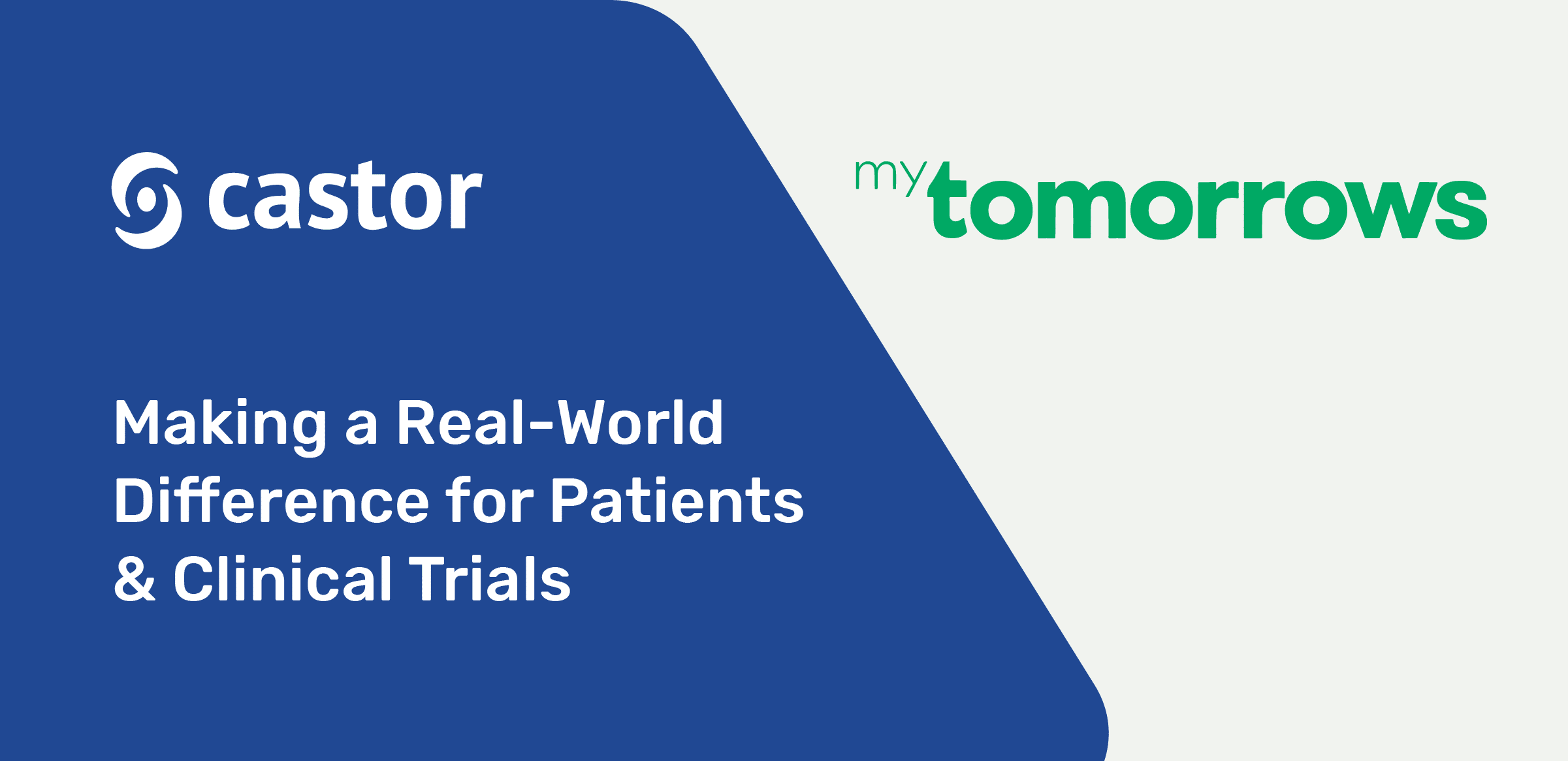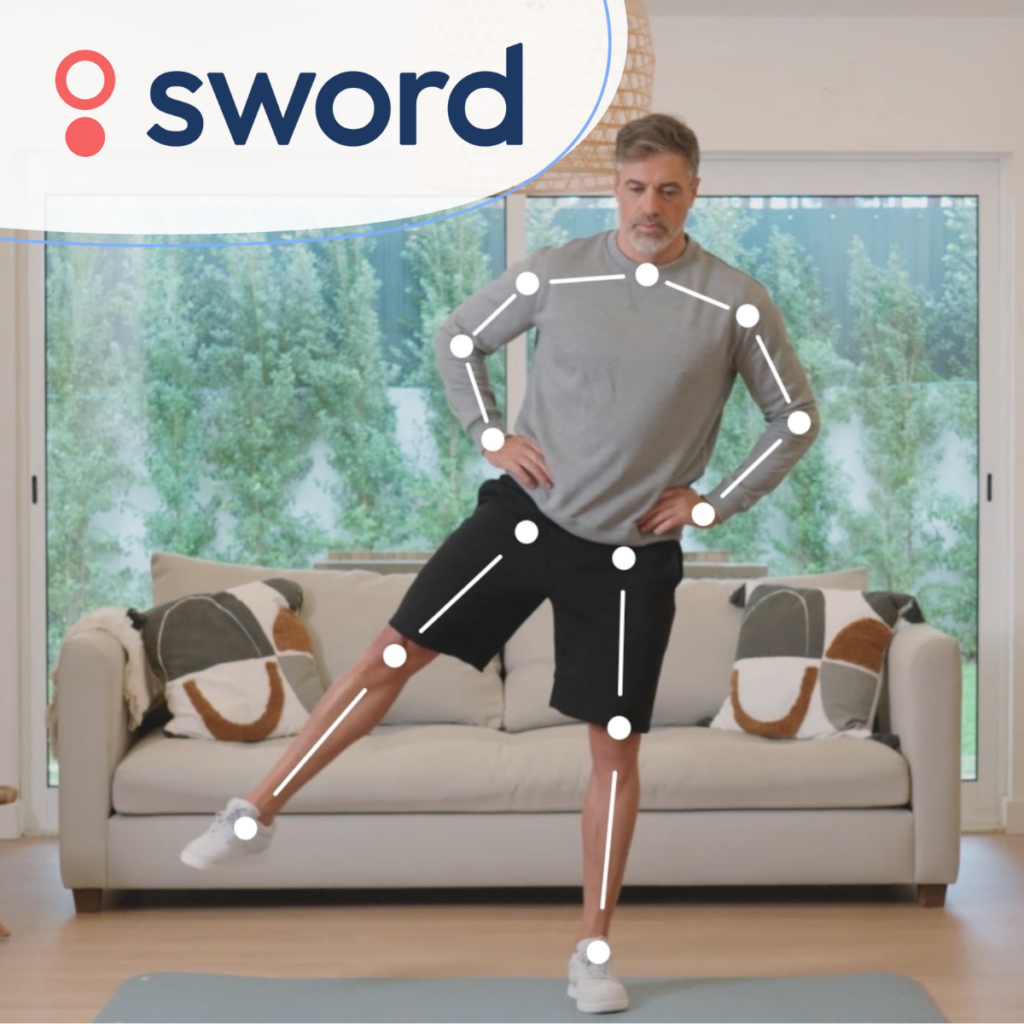Introduction
Hundreds of millions of data points have been collected in the course of clinical trials, but are often discarded or permanently archived after the study has concluded. Much of these data could potentially advance our development of cures and therapies in other contexts, and provide additional validation for similar studies in the future. Castor’s goal is to make the world’s research data reusable, enabling AI-driven clinical trials, and ultimately creating a future in which we maximize the impact of the data so many resources went toward collecting.
These efforts are gaining traction as the practice of medicine and clinical research grow ever more tightly linked. The rise of the “pragmatic” clinical trial, typically displaying a more relaxed inclusion criteria and collecting data from practicing healthcare providers as opposed to researchers, is one example. Castor is already supporting many pragmatic clinical trials, including the World Health Organization’s Solidarity trial.
Another way Castor is advancing better use of data is by supporting myTomorrows in connecting patients with expanded access programs. Expanded access is a pathway for patients to access investigational medicine. When satisfactory treatment with registered medicines is no longer an option, patients and physicians may start looking for unregistered and in-development treatment options. In their search, clinical trials form the primary pathway to access investigational medicine, and to advance medical knowledge on novel therapies. However, many patients fail to meet inclusion criteria for traditional trials, and inherently clinical trials themselves are not medical care, especially if the patient is assigned to a control group. For those patients, expanded access provides a possible solution.
myTomorrows is a free-of-charge platform that helps patients and physicians find and access investigational medicine. Patients on the platform are matched to trials and expanded access programs. They can immediately talk to patient navigators who guide them through the search process. Physicians can obtain a listing of treatment options or directly access investigational medicine via myTomorrows.
myTomorrows aims to learn from every patient they aid. Every patient they help enroll in clinical trials directly contributes to advancing medical research. For expanded access programs, myTomorrows designs and conducts data collection with Castor.
Challenges in recruitment and enrollment
Finding clinical trials is difficult. For patients it is difficult to disentangle the enormous amount of medical jargon. Physicians only have so much time they can spend searching through the endless array of clinical trials. myTomorrows alleviates these burdens by taking over the search process. Patient navigators conduct an automated search in worldwide trial databases and go over the results in detail. Finally, they write up a free, personalized listing with all potential treatment options: a Treatment Search Report.
“We guide patients through the whole process,” says Angela Sarmiento Betancourt, MD, who works as a patient navigator at myTomorrows. “It can be overwhelming to try to find treatment options and understand everything that is out there. We facilitate the search for them, explain how everything works, and hold their hand throughout the process.”
“We receive so many inquiries in so many disease areas, and we hear so many different stories,” she adds. “You get to talk to patients from all over the world and you build relationships with them, so it’s nice when you are able to help them enroll in a trial or expanded access program, provide them with information, or connect them with a patient organization.”
If a patient and physician together decide to pursue a listed treatment option, myTomorrows processes the enrollment into a trial or expanded access program. They take over all the necessary paperwork.
Finding patients is also difficult. Clinical trials continuously face difficulties enrolling enough patients. On the other hand, there are so many patients and physicians looking for treatment options. myTomorrows is the platform that helps both patients, physicians AND clinical trial teams. For clinical trial teams, myTomorrows helps with enrollment. For patients that can’t enroll in trials, myTomorrows offers expanded access.
What is expanded access?
Patients suffering from seriously debilitating or life-threatening conditions who are not eligible for further treatments or any clinical trials, may consider expanded access: a pathway to access investigational medicine. Expanded access is also known as ‘Compassionate Use,’ ‘Managed Access,’ or ‘Early Access.’
Expanded access exists alongside conventional clinical drug development. The difference with clinical trials lies in their main intent. Whereas the focus of clinical trials lies on research, expanded access is focused on providing treatment. Expanded access only becomes a possibility after clinical trials are ruled out. Ideally, as many patients as possible would enroll in clinical trials.
The majority of therapies accessible via expanded access is focused on treating hemato-oncologic disease, i.e. people with any type of (blood) cancer. Requests for expanded access are growing worldwide: the US is handling +/- 1200 individual requests per year and grants approval to +/- 80 group expanded access programs. Group programs simultaneously allow expanded access for a large group of patients. In the Netherlands, where Castor and myTomorrows are head-quartered, expanded access requests have been growing year over year as well. The Dutch nowadays process +/- 1000 individual requests and approve 5 group expanded access programs on a yearly basis.
Real-world data collection in expanded access
The primary intent of expanded access programs is to provide patients in need with a treatment option. Secondly, these expanded access programs are increasingly used by regulators and medical companies to gather real-world data (RWD). RWD are ‘information on health care that is derived from multiple sources outside typical clinical research settings [1]. Expanded access programs specifically offer patients treatments outside of clinical research settings and therefore are a source of RWD.
Regulators are increasingly focusing on ‘real-world evidence’: evidence generated from RWD sources. The US FDA 21st Century Cures Act encourages the FDA to broadly accept the usage of real-world evidence, to improve understanding of the safety and efficacy of treatments in real-world patient populations: patients that cannot enroll in clinical trials. Expanded access programs serve exactly that population. RWD from EA helps address the concern that clinical trials are so tightly controlled that they don’t always accurately represent the broader population of patients who will actually get the drug once it is approved.”
Castor as a platform for real-world data collection
Data collection within expanded access programs is restricted, as it is not the main intent for these programs. Furthermore, it should place no disproportionate burden on physicians and patients. That’s why myTomorrows has chosen Castor EDC as their data collection platform. By collecting data on treatment outcomes, myTomorrows utilizes Castor to monitor treatment and assess benefit/risk. “Compared to conventional clinical trials, data collection is limited. We really balance the nature of expanded access with the need-to-have and nice-to-have data points,” says Sarah Gunson, data monitor at myTomorrows. ”We needed a system that is very user-friendly for patients and physicians. Castor is just that. And for clinical programmers or monitors like me, Castor is very straightforward too. Whenever I feel something isn’t immediately clear, the Castor team is always very friendly and helpful,” she adds.
A bright future
Data collected during these programs has proven to add value, as shown in research that myTomorrows has conducted with the Erasmus University and with Erasmus Medical Center [2] . By actively contributing to scientific research, myTomorrows aims to remain at the forefront of combining expanded access and RWD. In their paper, over 45 cases were identified where data from expanded access programs informed the efficacy of drug approvals by the European Medicines Agency in Europe and by the Food and Drug Administration in the United States. Famous examples are imatinib, lutetium oxodeotride, or uridine triacetate [3]. RWD will become an increasingly important topic for regulatory science. But using these data does not only occupy the minds of regulators. At myTomorrows, they have an entire team dedicated to this. Sarah Gunson concludes: “Next to ongoing data collection projects, we are currently working on several exciting analyses for rare diseases, and have contributed to various posters at clinical oncology conferences.” It seems a topic that has really taken off!
Castor CEO Derk Arts adds, “While the industry has long seen the potential of real-world data, ironically, real-world implementations are rare. We are very excited about our collaboration with myTomorrows, because we are showing the industry the power of leveraging non-traditional data sources in a way that directly impacts patients’ lives. I predict use-cases like these will become common for landmark trials in the next decade.”
To learn more about how Castor enables the collection of real-world data, schedule a demo with us! Discover expanded access for clinicians and patients at myTomorrows.com
[1] US Food and Drug Administration. Real World Evidence. https://www.fda.gov/science-research/science-and-research-special-topics/real-world-evidence. 2021
[2] Polak TB, van Rosmalen J, Uyl-de Groot CA. Expanded Access as a source of real-world data: An overview of FDA and EMA approvals. Br J Clin Pharmacol. 2020;86(9):1819-1826. doi:10.1111/bcp.14284
[3]1 Reagan-Udall Foundation. Leveraging Real-World Treatment Experience from Expanded Access Protocols. 2018.



